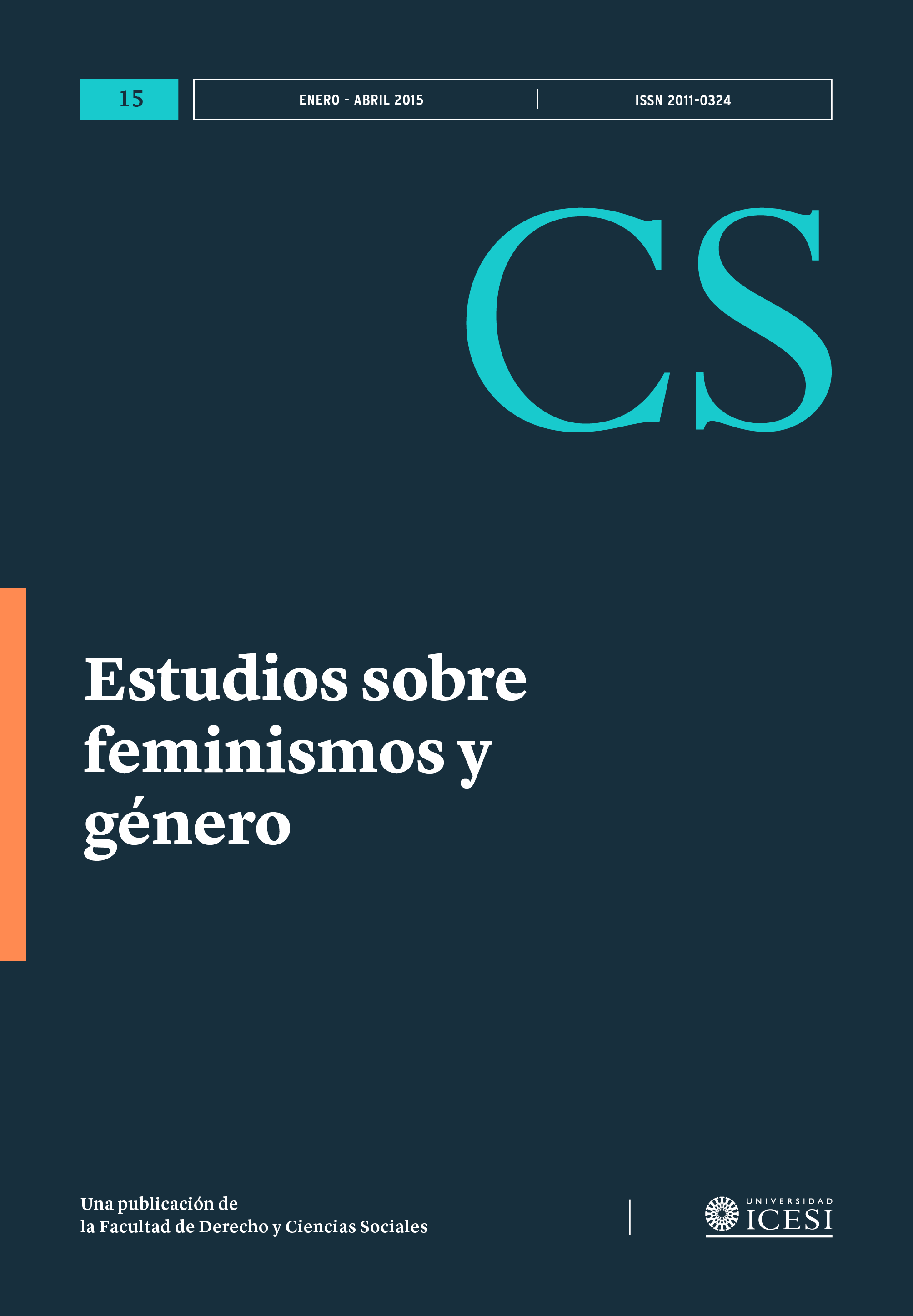“Family” as a legal concept
DOI:
https://doi.org/10.18046/recs.i15.1980Keywords:
Family law, Social policy, Feminism, Gender, Inequality, WomenAbstract
The concept of “family” plays an important role in the way national legal regimes distribute both power and resources. However, the idea of what a family is or should be is not univocal for all branches of law. In this paper we wish to contribute to feminist thinking about the law and to legal theory in general, by showing the contradictions and gaps in law’s incorporation of the legal concept of the family and their distributive impact. We use the notion of conceptual fragmentation to refer to the irregular manner in which family as a legal concept lands into the realms of diverse fields of law at different moments in time and with different emphasis. We argue that conceptual fragmentation makes connections through time and subject matter invisible, and therefore makes it harder to have a critique of the role of the family, treated as a legal concept, in the oppression of women. We establish that conceptual fragmentation is not irrational or incoherent but rather patterned in ways that correspond to the losses of women in contemporary societies. We use the case of colombian law to illustrate the stakes involved in defining the family and the operations that we call fragmentation. In particular, we explain how family law exceptionalism was produced, the importance of the legal concept of the family within family law and its ambivalence as to the proper definition, and the evolution of the concept of family within social policy. We argue that even if the stakes of the family seem to be all for same sex couples, in so far as “family” is still about reproduction and distribution, we should be vigilant about how women fare in the conceptual turns that seek to bring us closer to the natural family.
Downloads
References
ALVIAR GARCÍA, HELENA (2008). Derecho, Desarrollo y Feminismo en América Latina. Bogotá: Temis.
ALVIAR GARCÍA, HELENA, Y ISABEL JARAMILLO (2013). Feminismo y crítica jurídica. Bogotá: Universidad de los Andes y Siglo del Hombre Editores.
BARTLETT, KATHERINE (1999). ''Feminism and Family Law''. In Family Law Quarterly 33, pp. 475–500.
COLKER, RUTH (1991). ''Marriage''. In Yale Journal of Law and Feminism 3, pp. 321–328.
DEPARTAMENTO NACIONAL DE PLANEACIÓN. (1975). Para cerrar la Brecha. Plan de Desarrollo Económico y Regional 1975–1978. Bogotá.
DÍAZ GUIJARRO, ENRIQUE (1953). Tratado de derecho de Familia. Buenos Aires: Gráfica Editora Argentina.
ENGELS, FRIEDERICH (1966). El Origen de la Familia, la Propiedad Privada y el Estado. 4ta. Moscú: Editorial Progreso.
FINEMAN, MARTHA A. (1995). The Neutered Mother and other Twentieth Century Tragedies. New York, Routledge.
GORDON, ROBERT (1984). ''Critical Legal Histories''. In Stanford Law Review 36, pp. 47–150.
HALLEY, JANET, Y KERRY RITTICH (2010). ''Critical Directions in Comparative Family Law: Genealogies and Contemporary Studies of Family Law Exceptionalism''. In American Journal of Comparative Law 58, pp. 753–820.
HALLEY, JANET (2011). ''What is Family Law?''. In Yale Journal of Law and the Humanities, vol. 23, pp. 1–109.
JARAMILLO, ISABEL Y TATIANNA ALFONSO SIERRA (2008). Mujeres, Cortes y Medios. La Reforma Judicial del Aborto en Colombia . Bogotá: Universidad de los Andes y Siglo del Hombre editores.
JARAMILLO, ISABEL (2013). Derecho y Familia en Colombia. Historias de Raza, Sexo y Propiedad. Bogota: Editorial Uniandes.
JARAMILLO, ISABEL (2011). ''Dalla Tradizione della Famigilia alla Famiglia como Tradizione''. En Rivista Critica del Diritto Privato, Anno XXIX, vol. 2, pp. 233–247.
JARAMILLO, ISABEL (2010). ''The Social Approach to Family Law: Some Conclusions from the Canonical Treatises of Latin America''. In American Journal of Comparative Law 58, pp. 843–872.
KENNEDY, DUNCAN (1998). A Critique of Adjudication. Cambridge: Harvard University Press.
KENNEDY, DUNCAN.(2006). The Rise and Fall of Classical Legal Thought. Washington: Beard Books.
KENNEDY, DUNCAN (2006). ''Three Globalisations of Law and Legal Thought, 1850–2000''. In The New Law and Economic Develooment: A Critical Appraisal, David Trubeck y Alvaro Santos (eds.), pp. 19–74. Cambridge: Cambridge University Press.
MELO, JORGE ORLANDO (1991). ''Algunas consideraciones globales sobre ''modernidad'' y ''modernización''''. En: Fabio Giraldo y Fernando Viviescas (Comp.) Colombia: el despertar de la modernidad. Bogotá, Ed. Foro Nacional por Colombia.
OLSEN, FRANCES (1983). ''The Family and the Market: A Study of Ideology and Legal Reform''. In Harvard Law Review, pp. 1497–1578.
ORLOFF, ANN SHOLA (1993). ''Gender and the Social Rights of Citizenship: State Policies and Gender Relations in Comparative Research''. In American Sociological Review 58, n° 3, pp. 303–328.
PARRA, RODRIGO (1987). La Política Social en Colombia: 1975–1986. Bogotá: CEPAL.
QUINN, KERRY L. (2002). ''Mommy Dearest: The Focus on the Family in Legal Feminism''. In Harvard Civil Rights–Civil Liberties Law Review 37, pp. 447–481.
RUBIN, GAYLE (1975). ''The Traffic in Women: Notes on the ''Political Economy'' of Sex''. In Toward an Anthropology of Women, Rayna Reiter (ed.), pp. 157–210. New York: Monthly Review Press.
SHAMIR, HILA (2010). ''The State of Care: Rethinking the Distributive Effects of Familial Care Policies in Liberal Welfare''. In American Journal of Comparative Law 58, n° 4, pp. 953–980.
STONE, LAWRENCE (1979). The Family, Sex and Marriage in England, 1500–1800. New York: Pelican Books.
Published
Issue
Section
License
Copyright (c) 2015 Isabel Cristina Jaramillo Sierra, Helena Alviar

This work is licensed under a Creative Commons Attribution-NonCommercial 4.0 International License.
© Reserved Copyright
Material in this publication may be reproduced without authorization, provided the title, author and institutional source is acknowledged.
The content published in Revista CS is distributed under the Creative Commons BY-NC 4.0 Attribution/Recognition-NonCommercial 4.0 International license.
You are free to:
Share — copy and redistribute the material in any medium or format.
Adapt — remix, transform, and build upon the material.
Under the following terms:
Attribution — You must give appropriate credit , provide a link to the license, and indicate if changes were made . You may do so in any reasonable manner, but not in any way that suggests the licensor endorses you or your use.
NonCommercial — You may not use the material for commercial purposes.












